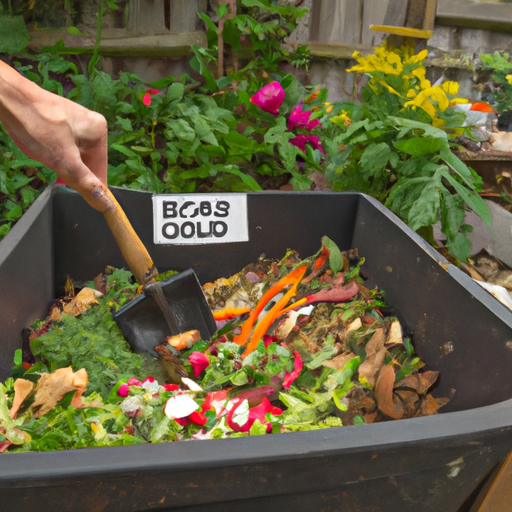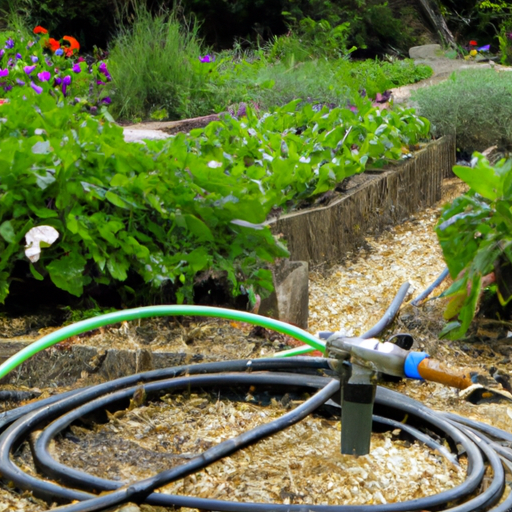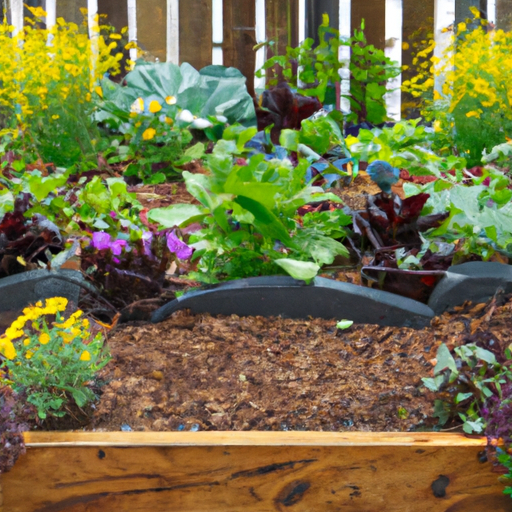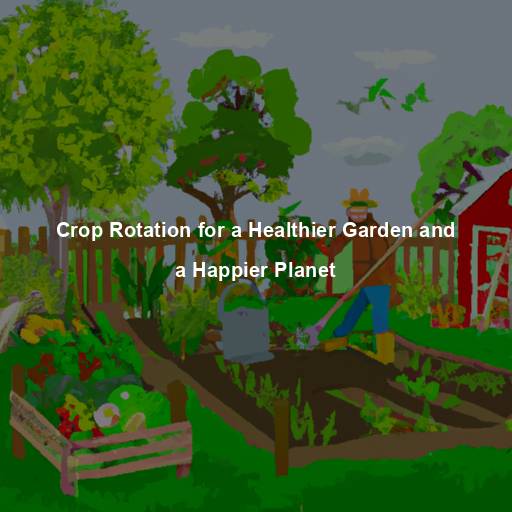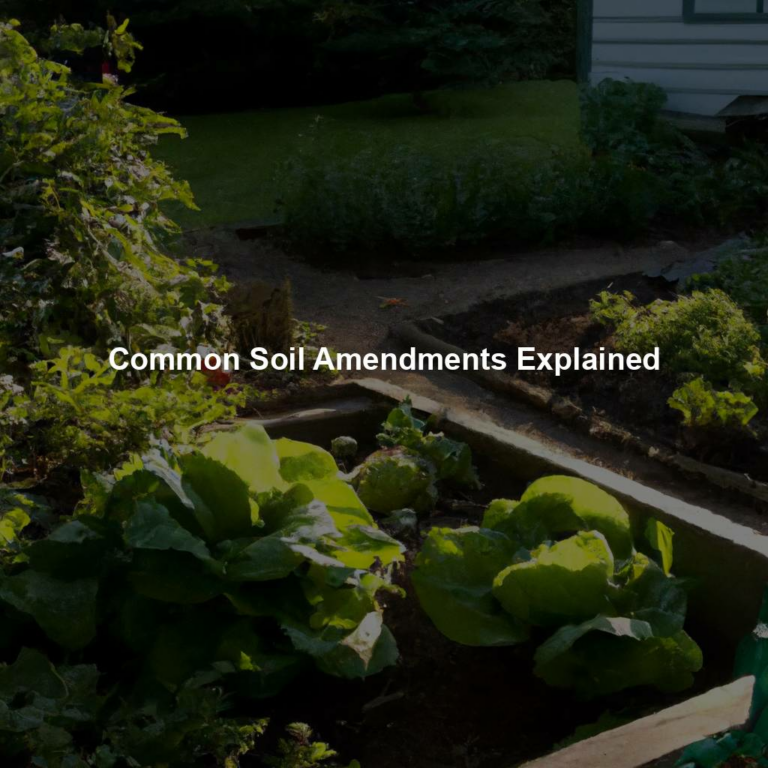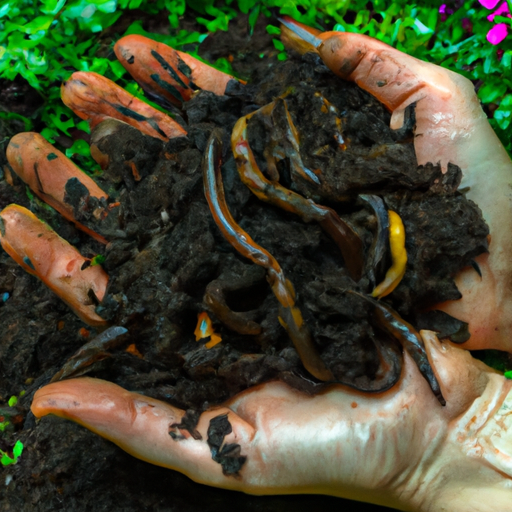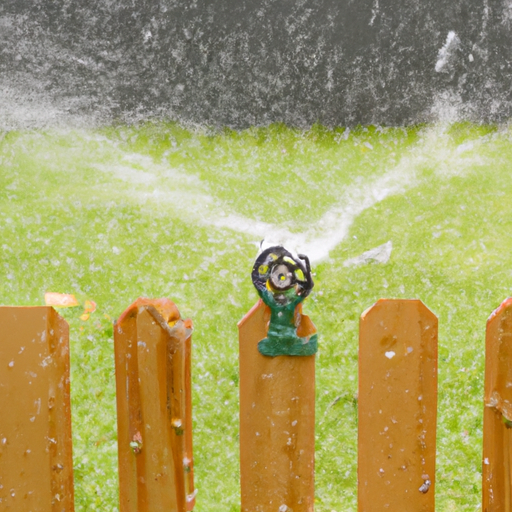Are you tired of throwing away your kitchen scraps and yard waste? Do you want to reduce the amount of garbage that goes into landfills while creating a nutrient-rich soil amendment for your garden? Then it’s time to master the art of composting!
As a Master Gardener with years of experience in composting, I’m excited to share with you some tips and tricks for making the most out of this valuable gardening practice.
Composting is an easy and environmentally-friendly way to turn organic waste into ‘black gold’ for your plants. By breaking down food scraps, leaves, grass clippings, and other organic materials into a rich humus-like substance, compost enriches soil vitality by improving its texture, water-holding capacity, and structure.
Whether you’re new to composting or have been doing it for years, there are always new techniques and methods to learn. So let’s dig in and discover how we can create healthy gardens through sustainable practices.
The Benefits Of Composting
Composting is like a magic elixir for your garden, providing it with essential nutrients and improving soil health.
As a Master Gardener, I cannot stress enough the importance of composting for gardening enthusiasts.
Not only does it benefit plants by increasing their resilience to diseases and pests, but it also helps in reducing food waste.
By diverting kitchen scraps from landfills and turning them into valuable organic matter, we can contribute towards creating healthier soils, cleaner air, and a more sustainable future.
So let’s roll up our sleeves, grab those pitchforks, and get started on this journey towards greener living!
Getting Started: Choosing The Right Composting Method
As a Master Gardener, I always recommend choosing the right composting method before getting started.
There are two main options: indoor composting and outdoor composting.
Indoor composting is perfect for those who live in apartments or have limited outdoor space. It involves using a worm bin to break down food scraps and yard waste.
Outdoor composting, on the other hand, requires more space but allows for larger amounts of materials to be added to the pile. This method involves layering brown (carbon-rich) and green (nitrogen-rich) materials such as leaves and grass clippings to create a nutrient-rich soil amendment.
Consider your living situation and available resources when deciding which method is best for you.
What To Compost (And What Not To Compost)
As a Master Gardener, I often get asked what can be composted and what should be avoided. Coincidentally, the answer is not as complicated as one might think.
In general, anything that was once alive can be composted – this includes fruit scraps, vegetable peels, coffee grounds, tea bags, and even eggshells. However, it’s important to avoid adding meat or dairy products to your compost pile as they can attract unwanted pests and create unpleasant odors.
If you’re composting indoors or have limited space outside, consider vermicomposting – using worms to break down organic matter into nutrient-rich soil for plants. This method is especially great for apartment dwellers who want to reduce their food waste while also producing fertilizer for indoor gardens. When selecting worms for vermiculture, make sure to choose Red Wigglers – they are efficient decomposers and thrive in confined spaces.
Remember that successful composting requires balance – a mix of ‘browns’ (dry leaves or shredded paper) and ‘greens’ (food scraps or grass clippings). Keep the pile damp but not too wet and turn it regularly to help speed up decomposition.
With these tips in mind, anyone can master the art of composting and create a sustainable cycle of nourishing soil from kitchen scraps!
Troubleshooting Common Composting Problems
As with any gardening endeavor, composting can come with its fair share of problems.
One common issue that gardeners face is the unpleasant odor that can arise from their compost pile. This is usually due to an imbalance of greens and browns in the mix, so try adjusting the ratio by adding more brown materials like dry leaves or shredded paper.
Another problem is slow decomposition, which may be caused by a lack of moisture or insufficient oxygen flow within the pile. Make sure to turn the compost regularly and keep it moist (but not too wet) to encourage faster breakdown.
Pests in your compost can also be a nuisance, but there are ways to deal with them naturally without resorting to harmful pesticides. Some options include using mesh screens or covers on your bin, burying kitchen scraps deeper into the pile, or adding beneficial nematodes to help control unwanted bugs.
By troubleshooting these common issues, you’ll be well on your way to producing rich, healthy compost for all your gardening needs.
Harvesting And Using Your Finished Compost
Now that you’ve patiently waited for your compost to mature, it’s time to reap the benefits of your hard work! As they say, ‘The proof is in the pudding.’
In this case, the proof lies in the rich and crumbly texture of your finished compost. Start by using a garden fork or shovel to carefully sift through your composting containers until you find only small bits of undecomposed material.
This final product can be used as an all-natural soil enrichment in vegetable gardens, flower beds, and potted plants. Spread a thin layer over existing soil before planting new seeds or seedlings, or mix into potting soil when repotting houseplants.
The possibilities are endless with this nutrient-rich black gold!
Frequently Asked Questions
How Do I Keep Animals From Digging Through My Compost Pile?
Keeping animals from digging through your compost pile can be a frustrating task for any gardener. Fortunately, there are some effective methods to deter them from doing so without harming the environment.
The first step is to use a composting bin that has solid sides and a lid to prevent access by larger animals such as raccoons or bears. If you have smaller critters like squirrels or rats, consider using natural repellents such as cayenne pepper or garlic spray around the perimeter of your bin.
Additionally, adding citrus peels, peppermint leaves, or dried blood meal into your compost mixture can also help repel unwanted visitors. With these simple tips in mind, you can enjoy an animal-free composter while still creating nutrient-rich soil for your garden.
Can I Compost Meat Or Dairy Products?
Ah, the age-old question of composting meat and dairy products.
To answer that, let’s examine the pros and cons, shall we? On one hand, these items do contain nutrients that can benefit your garden. On the other hand, they also attract all sorts of critters who will happily feast on them before you even get a chance to turn your pile.
Not to mention the foul odor they emit as they decompose. So what are some alternatives to composting animal products? You could try burying them deep in your soil or simply tossing them in with your regular trash (gasp!).
As a Master Gardener, I would never condone wasting potential nutrients for my precious plants, but sometimes sacrifices must be made for the sake of our sanity…and nose hairs.
How Often Should I Turn My Compost Pile?
To keep your compost pile healthy and thriving, it’s important to turn it regularly. This helps mix the materials together and ensures that all parts of the pile are exposed to oxygen, which is necessary for decomposition.
The frequency with which you should turn your compost pile depends on a few factors, including its size and composition. As a general rule of thumb, aim to turn your compost every one to two weeks during warm weather when Composting Temperature is at its highest.
When aerating compost, use a pitchfork or shovel to move material from the center of the pile outwards, creating new layers in the process. Remember, keeping your compost well-aerated will help create nutrient-rich soil for your plants!
Is It Necessary To Add Compost Activators Or Can I Rely On Natural Decomposition?
Did you know that using compost activators can speed up the decomposition process by 50%?
That’s right! The benefits of compost activators are endless, with many options available to choose from.
While comparing natural and artificial options is important when considering which one will work best for you, it’s also important to understand the factors affecting natural decomposition in composting.
While relying solely on natural decomposition may seem like a good idea, adding an activator will ensure faster and more efficient breakdown of organic matter.
So don’t be afraid to give your compost pile some extra help – try out some compost activators today!
Can I Add Weeds Or Diseased Plants To My Compost Pile?
When it comes to composting, weed management and disease control are two important factors.
While adding weeds or diseased plants to your compost pile may seem like a good idea, it’s actually best to avoid them altogether.
Weeds can easily spread in the compost and end up regrowing in your garden. Diseased plants can also transfer their diseases to other plants through the compost.
Instead, stick to using healthy plant material and kitchen scraps for your compost pile. By doing so, you’ll be able to create nutrient-rich soil that will benefit your garden without any potential negative effects from weeds or disease.
Remember, proper composting is all about balance and making sure everything you add contributes positively towards the health of your garden.
Conclusion
Well folks, now that you’ve learned the ins and outs of composting from a pro, it’s time to put your newfound knowledge into action!
Remember, keeping animals out of your pile is key for successful decomposition. Utilize fencing or chicken wire to keep unwanted critters at bay.
When it comes to what can be composted, steer clear of meat and dairy products as they will attract pests and slow down the process.
Turning your pile every couple of weeks ensures proper aeration and speeds up decomposition. While some swear by adding activators, nature has its own way of breaking down organic matter so trust in the natural process.
And don’t forget to leave weeds and diseased plants out of the mix! Happy composting my fellow gardeners!
With these tips and tricks under your belt, you’ll soon have nutrient-rich soil perfect for growing healthy plants and vegetables. So go forth and let Mother Nature do her thing with a little help from us humans.
